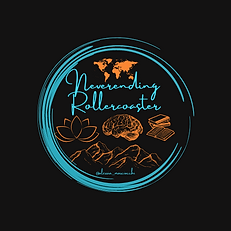Mindfulness basics and Multitasking
- Alessia Masciocchi
- Dec 5, 2024
- 3 min read
Hi, beauties!
Today I thought I'd talk to you about two very important topics for understanding Mindfulness. We'll start with the basics and then talk about multitasking. So don't miss this article!

BASIC NOTIONS OF MINDFULNESS
It is important to remember that the mind's activity is continuous and isn't connected to the present reality. Usually, our thoughts wander far from the "here and now" and we are judgmental.
Moreover, we often live under "autopilot" where the body is present, but the mind is not: we are dragged into doing things without even realizing it!
In the contemporary world, there are additional elements that hinder mindfulness, let's look at some:
Digital hyperconnectivity fragments our attention
Frenetic rhythms disconnect us from the present
Multitasking reduces the quality of our mental presence
Happiness is directly proportional to the ability to be present in our actions. Mindfulness's cornerstone is paying attention: with intentionality, in the present moment, and with a non-judgmental attitude.
How is mindfulness practised? This discipline can always be applied:
Both formally
Seated meditation
Body scan
Walking meditation
Mindful breathing exercises
And informally
Eating mindfully
Listening attentively
Observing sensations during daily activities
Noticing moments of autopilot
Let's go into the details.
For formal practice, it is necessary to carve out some time, while it can be practised informally at any time of the day: there are no precise rules and it serves to become aware of daily life.
A very important reason for Mindfulness is that "thoughts are just thoughts" and therefore they come and go. Awareness of these and understanding thought patterns can allow us to control our lives.
THE EFFECTS OF MULTITASKING
Lower efficiency:
Content Switching, or moving from one action to another, increases cognitive effort and augments cortisol and adrenaline levels.
"Content Switch" or context switching requires significant brain energy
Studies show that task switching can reduce productivity by up to 40%
An increase in cortisol (stress hormone) and adrenaline causes
Reduces intellectual quotient
University of London research shows:
A temporary drop of 10-15 IQ points during multitasking
Equivalent to the effect of a sleepless night
Greater impact on working memory
Reduction in problem-solving capacity
Causes permanent brain damage.
There is indeed a lower density in the Anterior Cingulate Cortex, responsible for empathy and cognitive and emotional control
Structural effects on the brain:
Reduction of neural density
Decrease in synaptic connections
Impact on emotional regulation
Alteration of empathy circuits
Long-term consequences:
Difficulties in emotion management
Reduced social understanding capacity
Problems in decision-making
Increases dopamine
Satisfaction seems never to arrive and one enters a vicious cycle where many things are done simultaneously
Altered reward mechanism:
Dopamine is released with each activity change
Addiction to the "multitasking high" is created
The brain constantly seeks more stimuli
Dependency cycle:
Need to increase simultaneous activities
Difficulty concentrating on single tasks
A feeling of boredom in monotasking activities
There is a greater depletion of carbonic glucose, which helps concentration. Effects include exhaustion and fatigue.
Consumption process:
The brain uses about 20% of total body energy
Multitasking significantly increases this consumption
ATP production is compromised by overload
Consequences:
Reduction of available energy for the brain
Decrease in concentration capacity
Accelerated mental fatigue
Need for more frequent breaks
I hove you have enjoyed this post! If so, click on the heart button and share! If you have any thoughts, feel free to share them in the comment section.

Commentaires